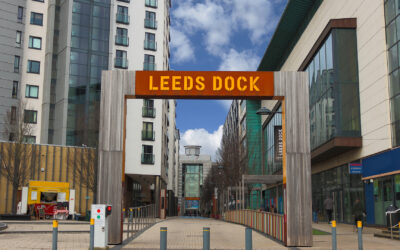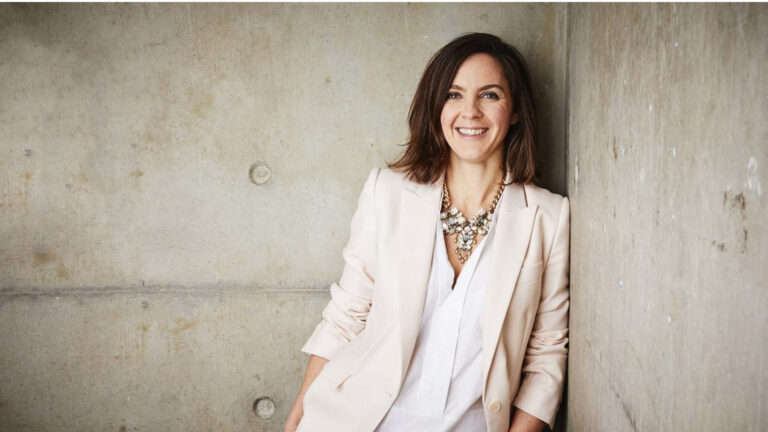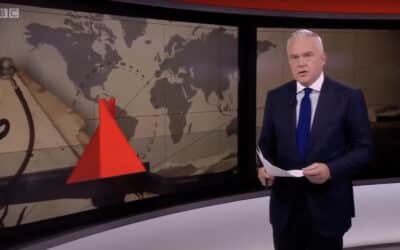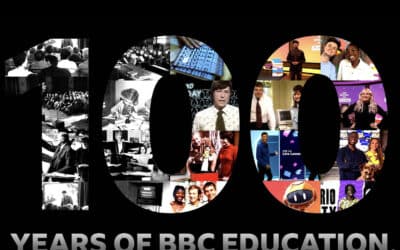Channel 4’s Alex Mahon has defended public service broadcasting against the threat of streaming services.
Speaking at the Deloitte Enders Conference, she pointed to the dominance of iOS, Android and Fire TV and how they are now “focused on extending their control to the most influential screen of all – the TV set.”
“Amazon are now launching their own Fire TV sets, and it’s not unreasonable to expect that, in the next three years, Google will have their operating system – Android TV – on more than half the TV sets sold the UK.
“We may be able to do deals for prominence now, but we don’t fully know what the long-term impact of this will be. But one thing we can be certain of is that none of these players has any vested interest in – or even any understanding of – public-service broadcasting.
“They’re certainly not interested in British originated content that serves the interest of all Britons, not in growing the range of production companies in the UK that offer jobs and creative opportunities in all corners of the country.
“What possible incentive is there for a Silicon Valley giant to encourage production in Northern Ireland, in Scotland or the North-east of England? Public service broadcasting is built on the core principal of PSBs being given prominence in exchange for delivering content which has clear public value for UK audiences.”
“This basic proposition is in stark contrast to the West Coast players’ business model. For them, prominence means either putting their own services first, or selling it to the highest bidder.”
Turning to news provision, she said that this threat could be “even more severe.”
“Do we as consumers care that without a regulated PSB system, our most prominent news feeds could be selected by US companies that are more concerned about profit than trust or accuracy?
“News-scraping – sounds painful, but the real pain will be felt by communities whose interests are ignored when impartial and regulated journalism is buried by those who have the means to pay the most.
“Trusting each other begins with discussions and debates based on facts we obtain from sources we can be confident are credible and free of commercial pressures.
“I don’t know about you, but I have never felt a greater need for consensus in this country, and weakening the ability of public-service television to inform, educate and, yes, to entertain is not the route to getting it.
“In America, where the bulk of OTT content we see will come from if PSBs in the UK are too weakened to provide it, there is little effort to confront these issues. Usually, subjects such as gender or addiction or poverty are seen as ways of provoking audiences, not informing them. Streamers are more likely to see controversy as a route to subscription growth rather than reconciliation.
“Here, we see public-service broadcasting as something that protects our society by revealing things, discussing them, normalising or debating them. In the future, we have to maintain that philosophy, because once gone, it won’t be coming back.
“If there is a possibility that British public-service content will struggle even to get in front the people who most value it – the British public – that is something we should be debating. Because it has serious implications for democracy and for social cohesion.”
Mahon did admit that she welcomed the review of Public Service Broadcasting, because “we must look at the challenges and opportunities that we face using data and research; otherwise we risk relying on arguments based on passion and on partisanship.”
She said that periods of change tended to “suit” Channel 4 and that the channel had a “role and responsibility” to bring “everyone in this country into focus and at the same time building an image abroad of what we offer to the world.”
“Firstly – we have huge resonance with young audiences – not just on our linear channels but on digital too.
“More than half of All 4’s views come from 16-34 year olds – and All4 profiles the same as younger focused SVODs like Netflix and Amazon.
“We think about how to reach those people in new ways. In 2019, we became the only PSB to be launching shows on Snapchat – with shows like Celebs Go Dating, Don’t Tell the Bride and Tattoo Fixers reaching over 35 million unique viewers on Snap.
“And because young people know and see and trust our brand – despite their evolving consumption behaviours – we have seen an upsurge in young audiences engaging in our news and serious factual.”
She added:
“Happiness among 16-25s is its lowest point in the Prince’s Trust Youth study’s history. This generation is overwhelmed by the pressure of our times, particularly the impact on them of social media.
“Their response to this situation has been to get more serious. This is the first generation raised in a fully-globalised world – and as such they embrace difference, empathy and have a sense of mission about the world.
“So, they’re not afraid of serious subject matter like mental health, the environment, the housing crisis, the psychological effects of social media. It’s what has drawn them to The Circle, and serious documentaries like Leaving Neverland, about a global paedophilia scandal, or Jade, examining class and politics in modern Britain.
“Look too at Hollyoaks, which in a year that it tackled big issues like the rise of the far right, overtook Coronation Street for its volume of young viewers – and to my great delight won Soap of the Year to boot.
“Or Channel 4 News, which saw a huge growth in its young audience share.
“Secondly – we engage and include audiences who feel overlooked and excluded.”
According to Mahon, Channel 4’s share of black and minority ethnic audiences was up “significantly” in peak last year – especially on Channel 4 News.
“This isn’t by accident. In the last two years we’ve taken a big shift from just looking at the diversity of our output, to thinking about what authentic portrayal means,” she explained.
“Last year we began tracking whether black and minority ethnic viewers thought Channel 4 was representing them authentically.
“This has helped us unpick the web of factors that determine what these viewers want on TV: that they want genuine inclusion, not just representation on screen; that they want to see the TV connect to both their communities and the wider world; that their culture shapes their tastes more than ethnicity; and that they still look to TV to provide a multi-generational viewing experience.”
Following the Brexit referendum and the 2019 election, she said they had “fundamentally changed” the organisation to better represent the UK and the people who felt they were being ignored.
Channel 4 is about to open the doors of its National headquarters in Leeds, as well as offices in Bristol and Leeds.
“Most importantly we’ve shifted the balance of our creative team considerably with commissioners from all our programme genres based in our offices outside of London.
“With our creative decision makers living and working in different communities and being closer to the audience we serve – we will be making creative decisions that are much more rooted in the tastes and themes of all of the UK.
“In post Brexit Britain it will be even more important to ensure we’re speaking to the issues and concerns that have driven the divides we now see across the nation.
“Channel 4 has a central part in paying attention to, representing authentically, and celebrating, the people and places of the UK. I have checked and “levelling up” is not actually in our written remit, but I am certain spreading opportunity across the country is very much in Channel 4’s genetic code.”
She concluded:
“We have to urge our political leaders and regulators to recognise the obstacles rapidly blocking the good things PSB content does for everyone in this country.
“There is no question that we have the power to earn our place, we have the talent to change and to evolve our businesses and to earn our place in the future. But without the support of the national powers that can offer us a modicum of control by legislative right, I wouldn’t bank on us to still be doing it in the same way in 2030. “













